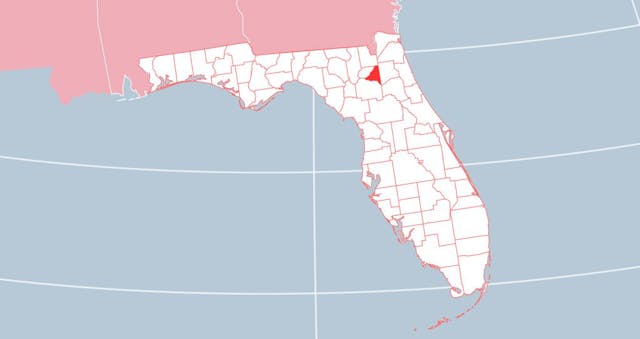Rehabs in Bradford
Bradford is a small county located in northeastern Florida. Overall, it has a territory of only 300 square miles. According to the latest census, its population stands at 28,303. Starke is the largest city and the seat. Founded in 1858, it faced a big growth in the 1880s. Due to its good location in the heart of the Sunshine State, it continued developing in the 20th century.
When studying the area, one would discover that it has a low unemployment rate of 4.3%. Job growth and comfortable weather conditions make it a perfect place to live. However, local residents still experience mental health and addiction problems. This article will dig deeper into rehabs in Bradford County.
Addiction Statistics
When looking at the map, you can easily see there are rehabs in Bradford County. Unfortunately, the community residents face addiction issues. The latest survey shows that 36.6 percent of community residents believe it’s the biggest challenge there.
Furthermore, Florida health charts show the number of overdose hospitalizations is rising. Annual drug arrests stand at 118. Luckily, opioid-related deaths are declining with only 4 registered last year.
The local sheriff’s office set up a narcotics task force. Its function is to punish and prevent illegal substance use.
Drug and Alcohol Evaluation
When you realize you have a problem, it is the first step on your way to healing. One of the options here is to call substance use crisis or emergency service. This is available in one of the Bradford county rehabs. A special team will respond to people who need help.
The next move is to determine if alcohol and drug abuse is a problem. Certified experts look into the scale of patients’ obsession with illicit substances. Medical staff can identify troubling signs and symptoms. The screening may reveal a person is struggling with addiction. This process may include an interview, an assessment, and screening itself as well as recommendations.
Types of Assistance
In general, there are different types of treatment for opioid and alcohol-related issues. All programs have a mission to facilitate a return to sobriety.
There may be outpatient, inpatient, or residential programs and partial hospitalization. Detox is also a part of inpatient treatment. It requires professional aid and control of the medical staff.
Outpatient care is a part-time assistance plan. In this case, the patient continues studying and working as usual. However, he visits the facility regularly. This may be an individual or a group counseling session. The main goal is to make a person return to normal life without narcotics.
An inpatient plan means you find yourself in round-the-clock supervision by specialists. In this case, a patient would fully commit himself to recovery.
Local Rehab Centers
The local centers provide different medical aid based on personal needs. There are three main facilities dealing with substance abuse:
Intensive Treatment Modalities
Meridian
Transition House
The Intensive Treatment Modalities’ specialization is group therapy for adults and teens. Both programs are to help clients build their essential life skills. Its mission is to provide crisis management. Most importantly, they engage clients in the healing process.
The Transition House’s focus is on residential care. Its Starke Residential Program specializes in dealing with behavioral issues. This includes case management, counseling, and 12-step recovery groups.
In addition to emergency help, Meridian offers a variety of services. Its doctors and therapists provide recovery from drug abuse, as well as psychiatric and rehabilitation services.
All the facilities accept major insurance plans. As for Meridian, it can sometimes offer free assistance. However, this occurs when the patient is unable to pay. This is, for example, when contracts for indigent care have been expended.

